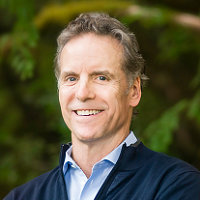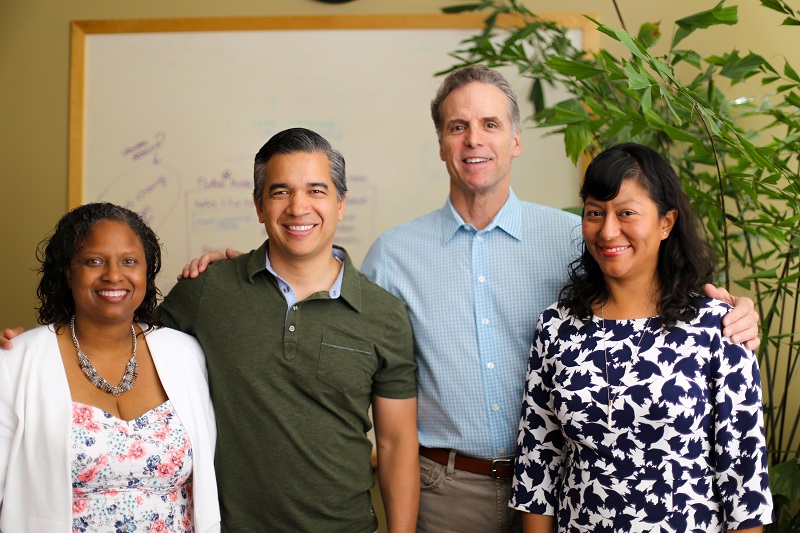Doug Stamm, Meyer Memorial Trust
 On the job since: 2002
On the job since: 2002
Foundation founded in: 1982
Geographic scope: Oregon
Grants made in 2015: Nearly $38 million
Staff: 38 FTE
Percentage of staff representing communities of color: More than 34%, including two-thirds of our executive leadership team.
How did you come to the decision to host a Momentum Fellow?
Philanthrpoy Northwest's CEO cohort on equity developed the concept of the Momentum Fellowship program as a strategy to bring greater diversity into philanthropy by creating meaningful pathways for people from historically marginalized populations to enter into the field. As “founder” of the program, our organization heartily embraced the opportunity to welcome Momentum Fellows into the Meyer Trust.
What has been a challenge for you and your foundation, related to diversity, equity and inclusion in philanthropy, and how are you working on it?
We have worked hard to develop and apply an equity lens to all aspects of our business and engage all our trustees and staff in this process along the way. The outcomes at Meyer have been profound and at times challenging and unsettling for all involved. To check in and evaluate our progress, we encourage all staff participation in our equity work and evaluation as to what is working, what isn’t and where we can improve from an equity standpoint. It is truly a journey, but the most important work we could be engaged in pursuit of our mission to contribute to a flourishing and equitable Oregon.
In engaging in equity work, leadership and the organization need to be comfortable with ambiguity and risk.
In addition our commitment to equity has dramatically changed our decision making processes from a top-down traditionally dominant culture approach — which is not always easy, most efficient or perfectly executed, but results in smarter and more innovative outcomes. We started out by asking if the right people were at the table or had been consulted — not only people with different and unique perspectives but also those impacted by the project results. Our core process questions, shared across staff in building diverse project teams, include:
Assumptions need to be aired and challenged
Final decision authority needs to be clear
Timing, both soft and hard timelines, should be understood by everyone
Agreement on impact and intentions established together
We have found that adopting this approach to addressing complex issues empowers diverse teams, resulting in smarter and more innovative outcomes than traditional processes.
What have you and your foundation learned from hosting a Momentum Fellow?
Our three Momentum Fellows have each brought a fresh look, deep and applicable expertise and extensive range of personal and professional experiences to Meyer. Their contributions and questions have been invaluable in our effort to be a more just and equitable funder working to create pathways to success and eliminating barriers to populations that have historically experienced the greatest disparities.

What would success look like for philanthropy and diversity, equity and inclusion?
Diversity in all respects like we have never seen around foundation leadership and staff, with personal experiences that mirror the folks we are trying to reach who experience the greatest of society’s disparities. Transitioning from a dominant culture field to one that is truly multi-cultural and reflects this in both the development and implementation of our strategies.
What advice would you give to other foundations interested in hosting a Momentum Fellow and/or integrating diversity, equity and inclusion into their work?
I’d start by asking, "Why not host a Momentum Fellow?" to both advance your organization and the field. Then, I’d want to explore if the organization is prepared and equipped to support and nurture the fellow in a way that ensures mutual success.
What’s a resource you would recommend to funders interested in learning more about this work?
I would be pleased to serve as a resource along with other current Momentum Fellow hosts and suggest we include a range of the fellows to ensure that both the organization and fellow perspectives are thoughtfully represented.
What’s one more question we should ask you, and how would you answer it?
I envision the Momentum Fellowship over time assuming a place of great respect and achievement for the fellows that will serve them well in the field of philanthropy or the career path of their choice. This likely means extending the program in both cohort size and geographical reach. Is this a reasonable expectation? When do we enter into these conversations around developing a plan and securing the support of other regional and national funders?
A smaller question. How is the program going to serve and connect cohorts after they leave the program, both in terms of securing employment and beyond around career development?
Doug Stamm is president and CEO of Meyer Memorial Trust, working with Momentum Fellows Marcelo Bonta, Sharon Wade Ellis and Katherine Porras.
Learn more about our nine Momentum Fellows and five foundations supporting this fellowship in our July 2016 Virtual Roundtable.